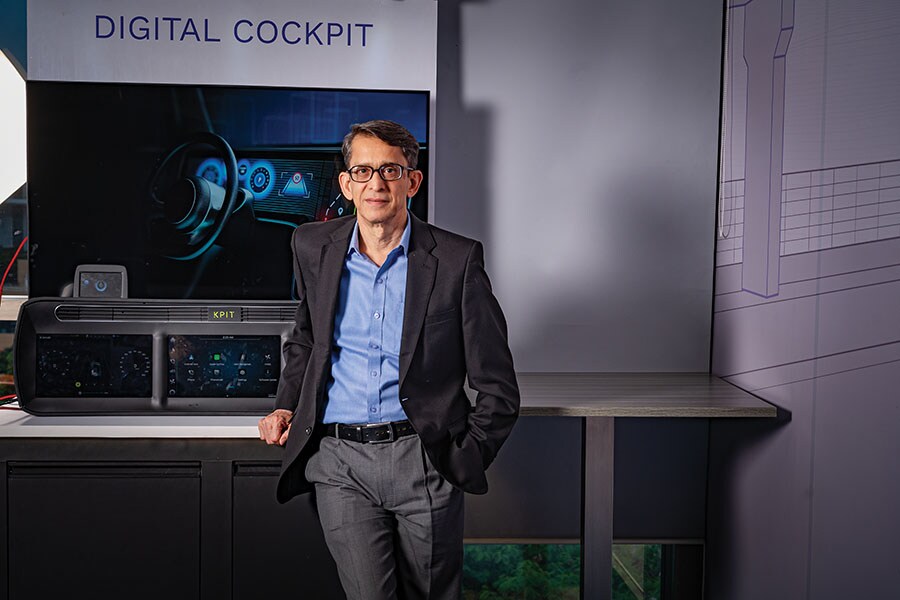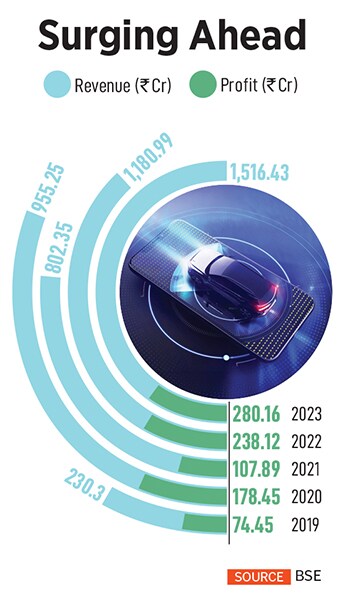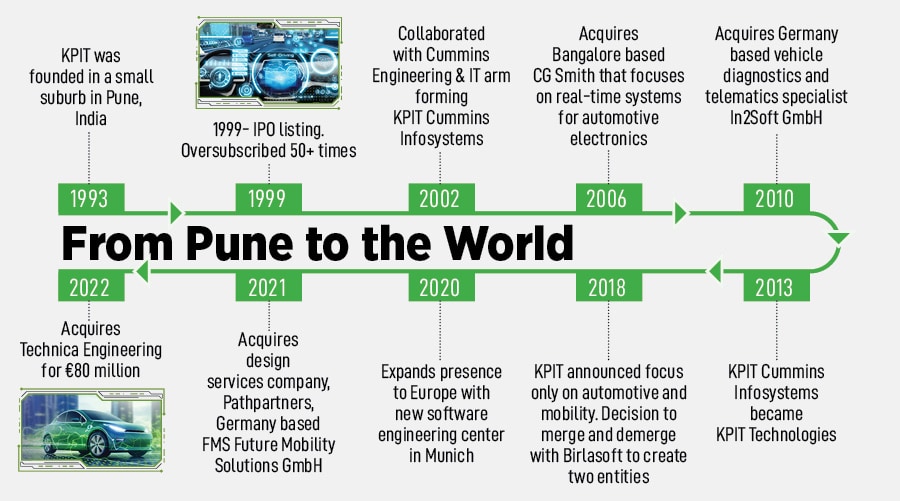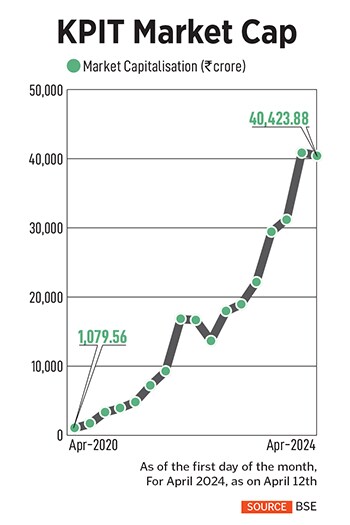
Long-term wealth creation calls for long-term investments: Ravi Pandit
With over Rs1,500 crore revenues and big-ticket clients like BMW, Honda, Ford and General Motors, Ravi Pandit, the chairman of global automotive software solutions provider KPIT Technologies, has debuted on the world billionaires' list
 Ravi Pandit, chairman and group CEO, KPIT, is worth $1.2 billion after KPIT’s phenomenal run on the bourses last year
Image: Swapnil Sakhare for Forbes India
Ravi Pandit, chairman and group CEO, KPIT, is worth $1.2 billion after KPIT’s phenomenal run on the bourses last year
Image: Swapnil Sakhare for Forbes India
Ravi Pandit never really set out to build an automotive software behemoth. That happened as an offshoot.
Instead, what Pandit, a chartered accountant—and a gold medallist at that—really wanted to do was expand his father’s chartered accountancy business into a global institution along the lines of Deloitte and KPMG. Pandit had just returned to India after completing his master’s programme in management from the illustrious MIT Sloan School of Management, specialising in finance and controls in the late 1970s, when he kickstarted the plan.
“After my master’s in the US, I worked there for a year,” Pandit, currently the chairman and group CEO of KPIT Technologies, a global automotive software solutions provider with a market capitalisation of ₹40,500 crore tells Forbes India. “I had to repay the loans that I had taken for my education. I did not come from an affluent family, and at that time, the annual expenditure was a lakh rupees at MIT and my father's income was ₹15,000. So, I stayed in the US for one more year.”
That stint with Alexander Grant in Chicago, now Grant Thornton, was rather crucial, and when he came back to the country, his father’s firm, Kirtane & Pandit, which started in 1956, employed 12 people. “There was a desire to build a company which was highly respected for the work that it did,” Pandit, whose name is Shashishekar, explains. “That was the vision, or a passion shared by our entire team. As it happens in the US and unfortunately does not happen in India, many of the accounting companies also do a lot of IT work.”
Companies such as Accenture, which has its roots in accounting firm Arthur Anderson and Deloitte or KPMG, all have an accounting practice history, before they transitioned into newer frontiers of consulting including IT services. “So, while we continued to work in our accounting company, we started building the IT practice,” Pandit says.




 Today, that IT practice that Pandit started with two others has evolved from Kirtane & Pandit Information Technology to KPIT Technologies, headquartered in Pune. The company employs over 12,000 people, and has engineering centres in Europe, the USA, Japan, China, Thailand, and India, counting clients such as BMW, Ford, Honda, and General Motors, among many others. The company’s primary focus is on providing embedded software, artificial intelligence, and digital solutions for the automobile and mobility sector, and is amongst the largest software integration partner for the global automotive industry.
Today, that IT practice that Pandit started with two others has evolved from Kirtane & Pandit Information Technology to KPIT Technologies, headquartered in Pune. The company employs over 12,000 people, and has engineering centres in Europe, the USA, Japan, China, Thailand, and India, counting clients such as BMW, Ford, Honda, and General Motors, among many others. The company’s primary focus is on providing embedded software, artificial intelligence, and digital solutions for the automobile and mobility sector, and is amongst the largest software integration partner for the global automotive industry.
 By 2018, though, the automotive division was on a phenomenal growth trajectory, contributing to over 43 percent of the group’s revenue, as KPIT ramped up its automotive offerings. The changing landscape in the automotive sector with software-embedded vehicles gaining traction also meant that KPIT now had a decision to make on whether to dabble across segments or turn into a pure-play focus on the automotive sector. “Electrification and autonomous was happening in a big way in the auto sector,” Patil says. “Our auto business was at least $150 million plus in this area. So, we thought this is the time when we need to take the plunge.”
By 2018, though, the automotive division was on a phenomenal growth trajectory, contributing to over 43 percent of the group’s revenue, as KPIT ramped up its automotive offerings. The changing landscape in the automotive sector with software-embedded vehicles gaining traction also meant that KPIT now had a decision to make on whether to dabble across segments or turn into a pure-play focus on the automotive sector. “Electrification and autonomous was happening in a big way in the auto sector,” Patil says. “Our auto business was at least $150 million plus in this area. So, we thought this is the time when we need to take the plunge.”





